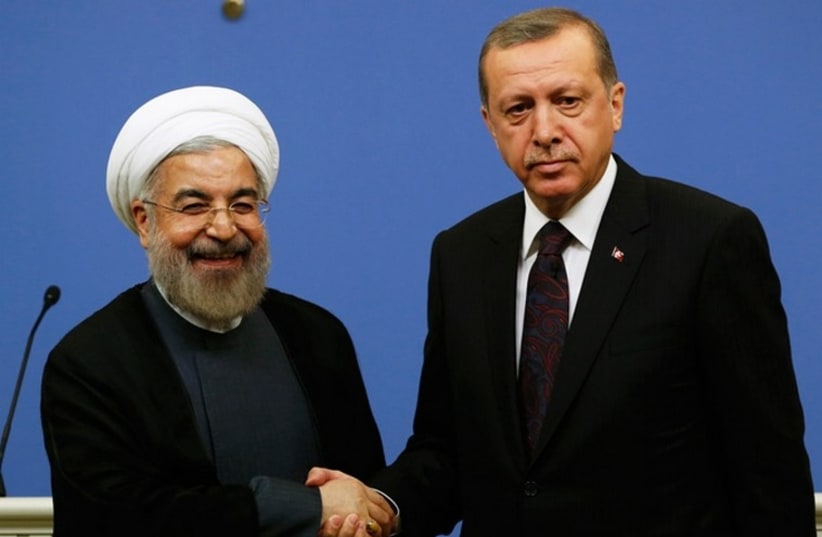The presidents of Iran and Turkey vowed during talks in Tehran on Wednesday to work closely together to prevent the disintegration of Iraq and Syria and to oppose the Iraqi Kurds' drive for independence.
Shi'ite Muslim Iran and mainly Sunni Muslim Turkey, a NATO member, have traditionally had cool relations but both have been alarmed by the Iraqi Kurds' vote for independence in a Sept. 25 referendum, fearing it will stoke separatism among their own Kurdish populations.
"We want security and stability in the Middle East ... The independence referendum in Iraq's Kurdistan is a sectarian plot by foreign countries and is rejected by Tehran and Ankara," Iran's President Hassan Rouhani said, according to state TV.
"We will not accept a change of borders under any circumstances."
Iran and Turkey have already threatened to join Baghdad in imposing economic sanctions on Iraqi Kurdistan and have launched joint military exercises with Iraqi troops on their borders with the separatist region.
Turkey's President Tayyip Erdogan, who is on a one-day trip to Tehran that will also include talks with Iran's Supreme Leader Ayatollah Ali Khamenei, said Ankara was considering taking further measures against Iraqi Kurdistan.
"We have already said we don't recognize the referendum in northern Iraq... We have taken some measures already with Iran and the Iraqi central government, but stronger steps will be taken," he said.
Iraq's autonomous Kurdistan region announced on Tuesday it was calling presidential and parliamentary elections for Nov. 1. Baghdad has responded with further punitive measures.
Iraq's central government, its neighbors and Western powers fear the vote in favor of secession could spark another, wider conflict in the Middle East region to add to the war in Syria, and fear it could derail the fight against Islamic State.
The Kurds are the region’s fourth largest ethnic group, spread across Iran, Turkey, Syria and Iraq, all of which oppose any moves towards a Kurdish state.
Erdogan, whose security forces are embroiled in a decades-long battle with Kurdish separatists in southeast Turkey, repeated in Tehran his accusation that Israel was behind the Iraqi Kurds' referendum.
"There is no country other than Israel that recognizes it . A referendum which was conducted by sitting side by side with Mossad has no legitimacy," he said, referring to the Israeli intelligence agency.
Israel has denied Turkey's previous claims of involvement in the vote, but has welcomed the Kurds' vote for independence.
Rouhani also said on Wednesday that Tehran and Ankara planned to expand their economic ties."Turkey will import more gas from Iran... Meetings will be held next week to discuss the details," he said.
